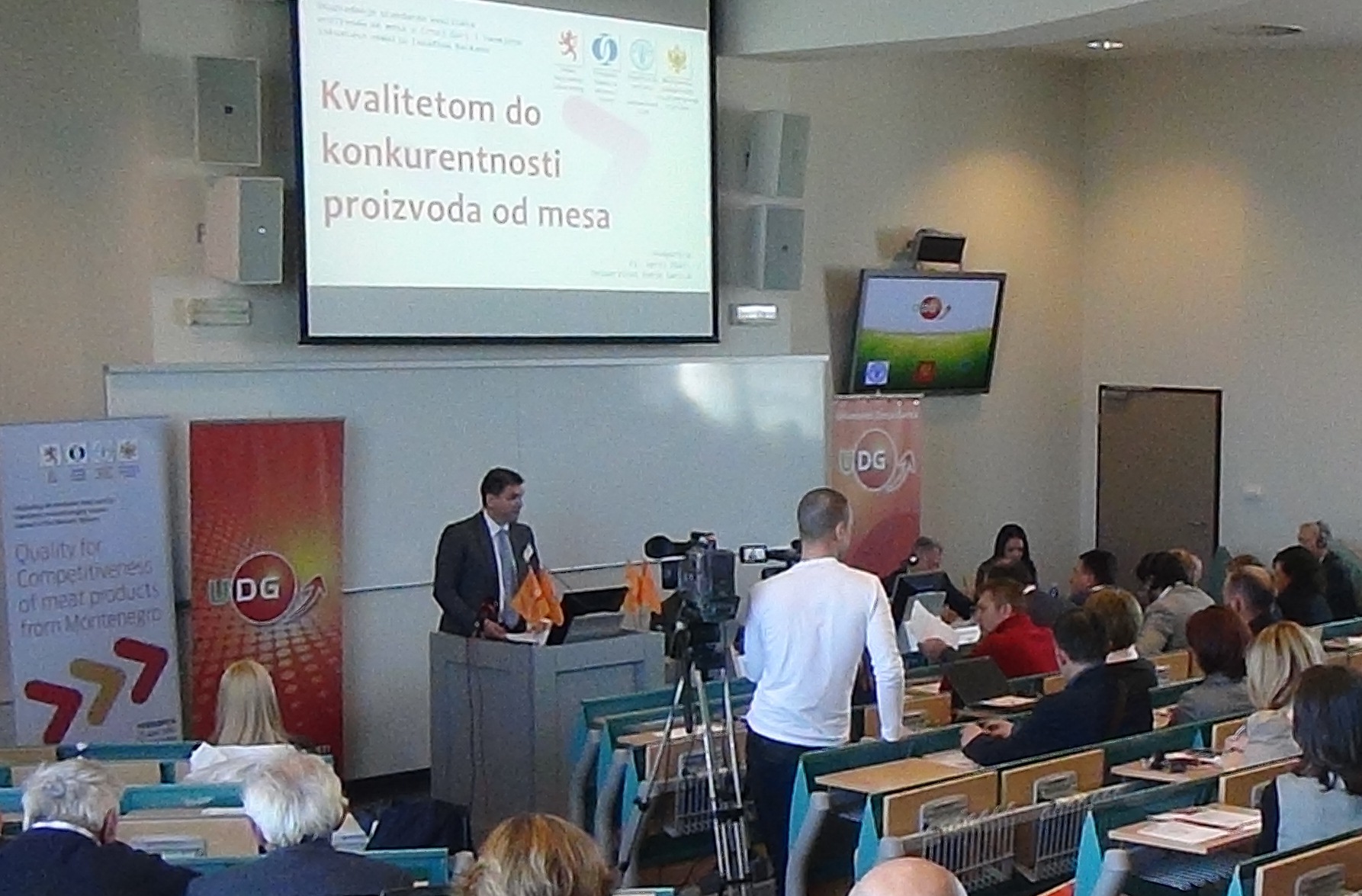Building on regional experience to increase the competitiveness of the Montenegrin meat sector

21 April 2015, Podgorica – The Food and Agriculture Organization of the United Nations (FAO), the European Bank for Reconstruction and Development (EBRD), with the support of the Ministry of Agriculture and Rural Development of Montenegro and financing from Luxembourg, launched a two-year joint project, aiming to upgrade meat quality standards in Montenegro and exchange lessons learned in the Western Balkans, on the occasion of yesterday’s conference, which focused on “Quality for competitiveness of Montenegrin meat products”.
“We hope that the conference will help us define together the most pressing challenges and opportunities in Montenegro’s meat sector and discuss how the EBRD and other stakeholders can positively help address those to foster sector growth and development” stated Giulio Moreno, EBRD Head of Office in Montenegro, who also highlighted the large potential of the country’s meat quality products, with strong cultural and historical heritage, to be more recognized by consumers on domestic, regional and European Union markets.
Upgrading to higher food safety and quality requirements, in particular to the Central European Free Trade Agreement (CEFTA) and the European Union, is also recognized as a prerequisite to widen export market opportunities and increase economic returns in the sector. “For Montenegrin meat producers, compliance with higher safety and quality standards is increasingly important for remaining competitive” says Mr Petar Ivanovic, Minister of Agriculture and Rural Development.
Leading experts and public-private stakeholders gathered in Podgorica to discuss “Quality for competitiveness of meat products from Montenegro”. The event brought together over 100 participants, including the public sector, representatives of the Delegation of the European Union to Montenegro, and executives of producing and processing companies.
Participants discussed ways to identify, develop and promote traditional quality products, the role of smallholders and the importance of flexibility provisions, as well as policies and food safety and quality standards in the region. Mr Djordije Goranovic Director of Meat Industry Goranovic and Mr Hilmija Franca, Director of Mesopromet-Franca agreed that “trends concerning Montenegrin meat industry are positive, bearing in mind that the export of the meat products from 2006 to 2013 increased five and one-half fold. Even so, there still remains much room for growth, seen by the fact that the country imports a large quantity of meat, valued at USD 92.7 million, each year.”
The roundtable in the afternoon offered a platform for discussions amongst producers from the region –including two of the largest meat processing companies in Montenegro, Goranovic and Mesopromet, as well as Carnex and Agrokor – on food safety and quality requirements. Participants of the roundtable shared their experience on the preservation of traditional products, how to sufficiently support smallholders, and the importance of quality and brand development.
Ms Emilie Vandecandelaere, Agribusiness Economist at FAO, highlighted Montenegro’s rich food heritage and the significant work that is being undertaken to enhance recognition of traditional products. “Taking inventory of traditional products is not only done for posterity, but is also a first step in promoting such products through greater market regulation and assisting consumers to decipher which are the quality products.”
Under the FAO/EBRD project, which aims to boost the competitiveness of Montenegrin agribusinesses and help local producers access global markets, an inventory of traditional Montenegrin products will be developed with support from the Ministry of Agriculture and Rural Development as well as the University of Donja Gorica, in Podgorica. A pilot product from the meat sector will be chosen for specification and registration in order to demonstrate the potential of quality labelling in the country. “Emphasising geographical origin and traditional production methods helps producers differentiate their products on both the domestic and export markets and supports agribusiness growth,” states Miljan Zdrale, EBRD Head of Agribusiness for central and south-eastern Europe. The first meeting of the Steering Committee will be held on the occasion of the launching conference.
Participants also benefitted from the experiences of neighbouring countries, such as Croatia’s successful registration of a protected geographical indication (PGI) for the Baranjski kulen in July 2012, which was supported by a joint FAO/EBRD project to develop GIs and strengthen backward linkages to local suppliers.
Looking forward, project stakeholders emphasized that stronger coordination between the public and private sector, as well as building on past experiences of other countries in the region, will be the key to addressing primary issues in the Montenegrin meat sector through a national strategy.
FAO and EBRD are committed to supporting more efficient and inclusive agri-food chains by building capacities of producers and public authorities, developing flexibility provisions for smallholders and traditional products, and demonstrating the potential for GI product registration.
